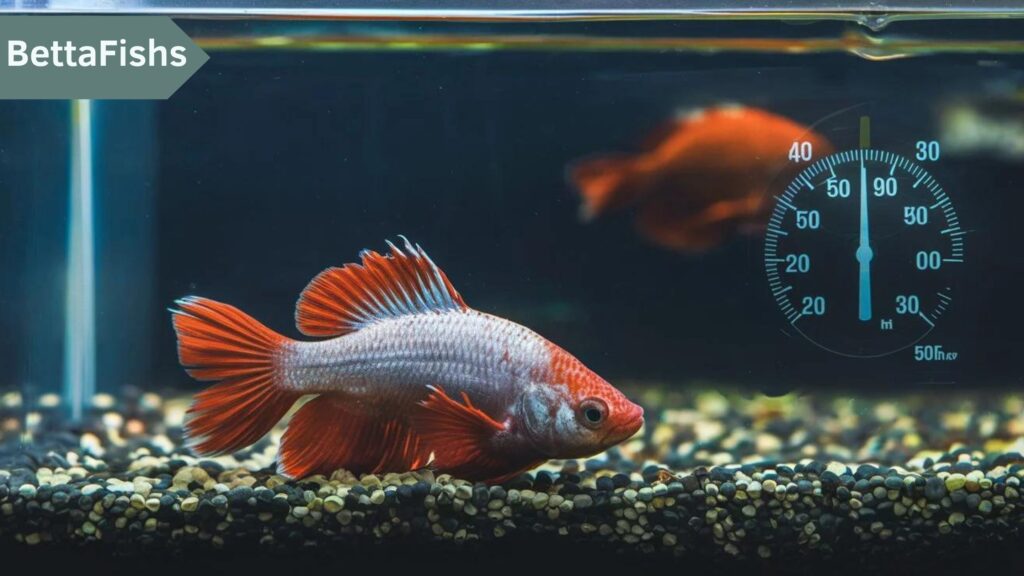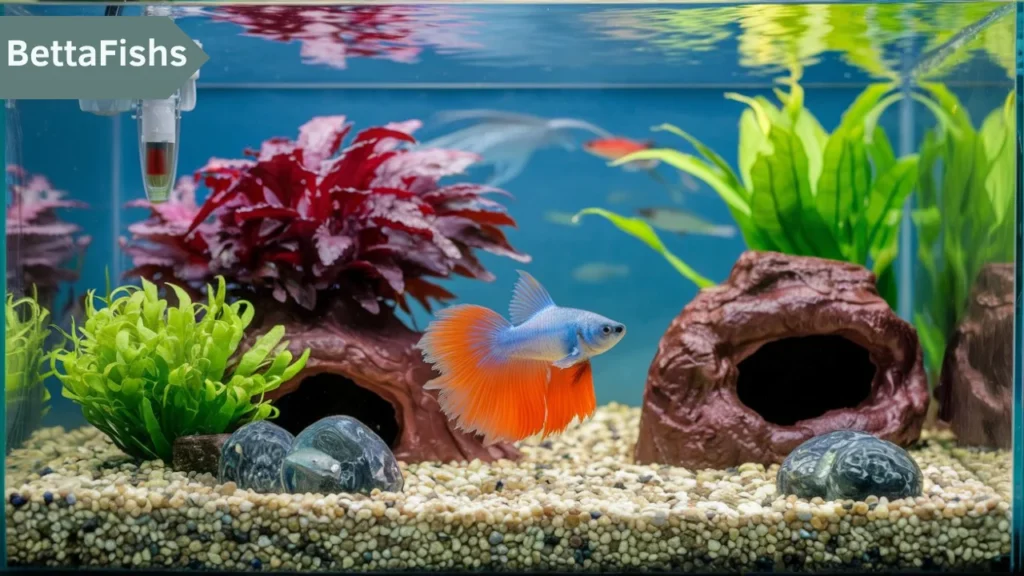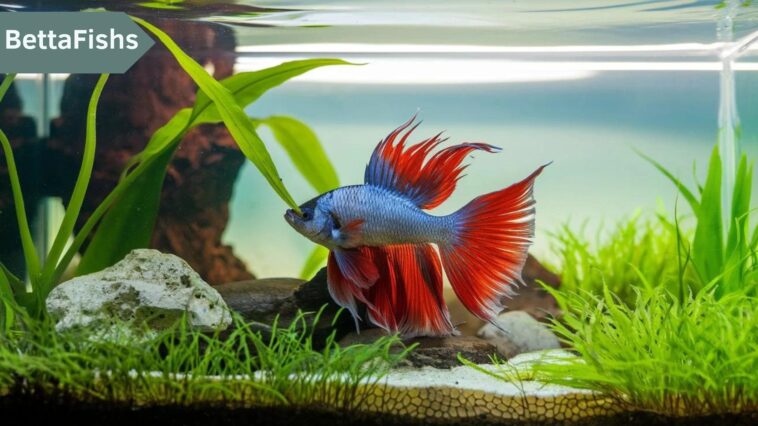What Are Betta Fish?
Betta fish, or Siamese fighting fish, are popular freshwater fish known for their vivid colors and elaborate fins. They are often kept in home aquariums and are beloved for their beauty and relatively simple care requirements. Native to Southeast Asia, bettas thrive in warm, shallow waters and have a reputation for being territorial. In this article, we cover ” Do Betta fish hibernate? ” in detail.
Common Behaviors of Betta Fish
Betta fish are known for their interactive and sometimes aggressive nature. They flare their gills to appear larger when threatened or trying to impress. They also have specific patterns of rest and activity, which can sometimes confuse owners into thinking something is wrong when it’s just their natural behavior.
The Concept of Hibernation in Animals
Hibernation is a period of inactivity and metabolic depression in endotherms. While this is common in some mammals, the concept does not directly apply to fish like bettas. However, the idea of reduced activity due to environmental changes often leads to questions about whether betta fish hibernate.
Do Betta Fish Hibernate?
Defining Hibernation
Hibernation typically involves a significant drop in body temperature, heart rate, and metabolism, allowing animals to survive periods of food scarcity. Fish, however, do not hibernate in the same way mammals do, as they are cold-blooded and rely on the environment to regulate their body temperature.
Differences Between Hibernation and Other States
Instead of hibernating, fish may enter a state of dormancy or torpor, where their activity levels decrease in response to colder temperatures. This is not the same as hibernation, as the fish’s metabolic functions do not slow to the same extreme degree.
Betta Fish and Their Natural Habitat
In the wild, betta fish live in warm, stagnant waters like rice paddies, ponds, and slow-moving streams. These environments do not usually experience drastic temperature drops, so betta fish do not have an instinct to hibernate.
Why Betta Fish Might Seem Like They Are Hibernating
Decreased Activity in Cold Water
If your betta fish becomes less active, it’s often due to a drop in water temperature. Cold water slows down their metabolism, making them sluggish and less responsive.
Impact of Temperature on Betta Fish
Betta fish are tropical and require water temperatures between 75-80°F (24-27°C). When temperatures drop below this range, bettas may become less active and even appear to be in a state of hibernation, though this is not true hibernation.
Betta Fish’s Metabolism
A betta’s metabolism is directly influenced by water temperature. When the water is too cold, their bodily functions slow down, leading to reduced movement and decreased appetite. This state is frequently confused with hibernation.

Signs That Your Betta Fish Is Not Hibernating but Resting
Normal Resting Behavior
Betta fish do rest, often lying still at the bottom of the tank or on leaves. This is normal behavior and usually occurs at night or during periods of low light.
How Betta Fish Sleep
Betta fish do not have eyelids, thus it is difficult to detect when they are sleeping. They often find a comfortable spot and remain motionless for short periods, which is a sign of healthy rest rather than hibernation.
Common Mistakes Owners Make
Sometimes, owners mistake resting bettas for sick or hibernating fish. It’s important to monitor other signs of health, such as color, appetite, and breathing, to differentiate between normal rest and potential problems.
Betta Fish Behavior in Winter
Adjustments to Cold Water
During winter, if the tank water is not heated properly, your betta may seem lethargic. Ensuring the water stays within the recommended temperature range is crucial for preventing stress and illness.
How to Recognize Stress in Betta Fish
Signs of stress in bettas include clamped fins, loss of color, and erratic swimming patterns. If your betta is showing these signs, it’s likely due to environmental stressors rather than hibernation.
Difference Between Stress and Illness
While stress can cause a betta to be less active, illness may present with additional symptoms like white spots, torn fins, or labored breathing. It’s important to differentiate between the two to provide appropriate care.
The Role of Temperature in Betta Fish Activity
Ideal Temperature Range for Betta Fish
Maintaining a water temperature between 75-80°F (24-27°C) is essential for betta health. Temperatures outside this range can lead to decreased activity and potential health issues.
Effects of Cold Water on Betta Fish
Cold water can cause a betta’s metabolism to slow, leading to lethargy, reduced appetite, and weakened immune function. Prolonged exposure to cold water can be dangerous and should be avoided.
How to Maintain the Right Temperature
Using an aquarium heater and regularly monitoring water temperature is key to keeping your betta active and healthy. It’s also important to avoid sudden temperature changes, which can shock your fish.
Common Misconceptions About Betta Fish and Hibernation
Hibernation vs. Dormancy
Many people confuse hibernation with dormancy. While hibernation involves a deep sleep and significant metabolic slowdown, dormancy in bettas is more about reduced activity due to environmental factors like temperature.
Myths About Betta Fish Care
Some believe that bettas can thrive in unheated tanks or that their activity naturally decreases in winter. In reality, bettas require consistent warmth and care year-round to maintain their health.
Clarifying Common Myths
It’s crucial to understand the specific needs of betta fish to dispel common myths. Proper education on their care can prevent issues like mistaken hibernation.
Providing a Healthy Environment for Your Betta Fish
Importance of Water Quality
Clean, properly filtered water is essential for a betta’s health. Regular water changes and monitoring for ammonia, nitrites, and nitrates help create a stable environment.
Proper Feeding Practices
Bettas should be fed a balanced diet rich in protein. Overfeeding or feeding low-quality food can lead to health problems and should be avoided.
The Role of Light and Darkness
Bettas need a natural day-night cycle. Providing periods of light and darkness helps regulate their behavior and ensures they get adequate rest.
How to Monitor Your Betta Fish’s Health
Observing Daily Behavior
Keeping an eye on your betta’s daily activities can help you spot any changes that might indicate a problem. Lethargy, loss of appetite, or strange behavior should be handled immediately.
Checking for Signs of Illness
Regularly inspect your betta for signs of illness, such as color changes, fin damage, or unusual spots. Early detection is critical to effective treatment.
The Importance of Regular Tank Maintenance
Routine cleaning and maintenance of your betta’s tank help prevent the buildup of harmful bacteria and ensure a healthy living environment.

What to Do If Your Betta Fish Is Less Active
Step-by-Step Guide to Reinvigorate Your Betta
If your betta is less active, first check the water temperature and quality. Gradually warming the water and ensuring it is clean can help revive your betta’s energy levels.
Adjusting Water Temperature Safely
Never shock your betta by rapidly changing the water temperature. Instead, gradually adjust it over several hours to prevent stress.
Encouraging Activity Through Environment Enrichment
Adding plants, caves, and other structures can stimulate your betta and encourage exploration. Enrichment keeps your betta mentally and physically active.
When to Consult a Veterinarian
Signs of Serious Illness
If your betta shows signs of serious illness, such as refusal to eat, labored breathing, or visible wounds, it’s time to consult a vet.
How to Find a Vet Specialized in Fish
Look for a vet who specializes in aquatic animals, as they will have the knowledge and experience needed to treat your betta.
Preparing for a Vet Visit
Bring a water sample from your betta’s tank to the vet, as water quality can significantly impact your betta’s health. Providing detailed observations of your betta’s behavior will also help the vet diagnose the issue.
Preventing Stress in Betta Fish
Creating a Calm Environment
A calm, quiet environment is essential for reducing stress in bettas. Avoid placing the tank in high-traffic areas or near loud noises.
Avoiding Overcrowding in the Tank
Bettas prefer solitary living conditions. Overcrowding or placing them with incompatible tank mates can lead to stress and aggression.
Ensuring Proper Nutrition
Feeding your betta a varied diet that meets their nutritional needs is crucial for preventing stress and maintaining overall health.
The Lifespan of Betta Fish
Average Lifespan
The average lifespan of a betta fish is 3-5 years, though with proper care, they can live longer. Factors like water quality, diet, and tank environment play a significant role.
Factors That Affect Lifespan
Stress, poor water quality, and inadequate nutrition are major factors that can shorten a betta’s lifespan. Providing consistent, high-quality care is essential.
How to Help Your Betta Live Longer
To extend your betta’s life, focus on maintaining a clean environment, feeding a balanced diet, and minimizing stress.
Common Health Issues in Betta Fish
Recognizing Common Diseases
Bettas are prone to diseases like fin rot, ich, and swim bladder disorder. Recognizing the early signs can lead to more effective treatment.
How to Treat Common Illnesses
Treatment often involves improving water quality, adjusting diet, and sometimes administering medication. It’s important to act quickly to prevent the illness from worsening.
Preventative Measures
Preventative care, including regular water changes, proper feeding, and maintaining the right tank conditions, can help keep your betta healthy and disease-free.
Conclusion
In conclusion, betta fish do not hibernate, but they can enter a state of reduced activity, especially in colder water. Understanding your betta’s behavior and providing the right environment are key to ensuring their health and happiness. By keeping the water at the right temperature, offering a balanced diet, and monitoring your betta’s behavior, you can prevent the common issues that may make your betta seem like it’s hibernating.
FAQs
Do Betta Fish Sleep?
Yes, betta fish do sleep, usually during the night or in low-light conditions. They remain still, often near the bottom of the tank or on leaves.
How Can I Tell If My Betta Fish Is Sick?
Signs of illness in bettas include lethargy, loss of color, clamped fins, and unusual swimming patterns. If you notice any of these, it’s important to check water quality and possibly consult a vet.
What Is the Ideal Tank Size for a Betta Fish?
The ideal tank size for a betta is at least 5 gallons. Smaller tanks can lead to poor water quality and stress, both of which can harm your betta.
How Often Should I Feed My Betta Fish?
Betta fish should be fed 1-2 times daily with a diet rich in protein. Overfeeding can lead to obesity and other health issues.
Can Betta Fish Live With Other Fish?
Bettas are territorial and often prefer to live alone. However, they can coexist with certain peaceful species, provided there is enough space and hiding spots in the tank.





7 Comments
Leave a Reply7 Pings & Trackbacks
Pingback:Do Betta fish get lonely?
Pingback:Why Do Betta Fish Make Bubbles?
Pingback:How do you train a Betta fish?
Pingback:How high can Betta fish jump?
Pingback:How long does betta fish sleep?
Pingback:How to euthanize Betta fish?
Pingback:Will a betta fish kill a goldfish?